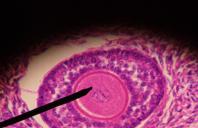BPA Can Disrupt Human Egg Development, Study Shows
A recent study published in Human Reproduction shows that exposure to Bisphenol-A (BPA)—a chemical previously designated by the State of California as known to cause reproductive harm, and temporarily delisted by court order, and currently in litigation—can affect egg maturation in humans, ScienceDaily reported.
Researchers examined eggs exposed to BPA and found a decrease in the percentage of eggs that developed normally and an increase in the percentage of eggs that degenerated. These effects were heightened as the amount of BPA exposure increased.
BPA is used in a variety of common consumer products, such as hard plastic water bottles, thermal paper such as sales receipts, and epoxy resins used to line the interior of food cans. California’s Office of Environmental Health Hazard Assessment designated BPA as a reproductive toxicant earlier this year, but was sued by the American Chemistry Council. A judge issued a temporary injunction ordering that the designation be removed pending a trial.
The Chanler Group represents citizen enforcers who, acting in the public interest, commence actions against businesses offering products for sale in California that contain chemicals known to cause cancer or reproductive harm without first providing the health hazard warning required by Proposition 65. Citizen enforcers bringing Proposition 65 actions in the public interest may obtain a Court Judgment imposing civil penalties, an injunction requiring reformulation of products, and/or provision of health hazard warnings. The Chanler Group has represented citizen enforcers of Proposition 65 for more than twenty years.

